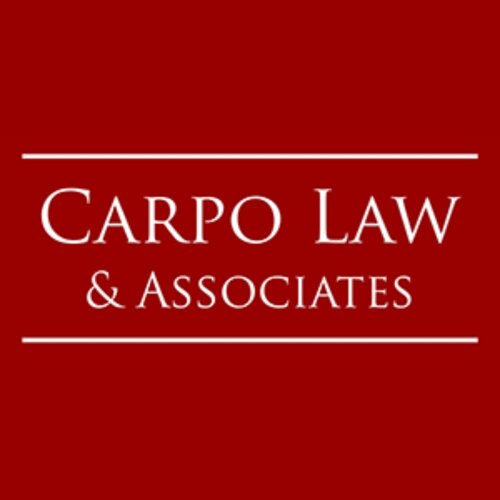Best Foreclosure Lawyers in Taguig
Share your needs with us, get contacted by law firms.
Free. Takes 2 min.
Free Guide to Hiring a Real Estate Lawyer
List of the best lawyers in Taguig, Philippines
About Foreclosure Law in Taguig, Philippines
Foreclosure is the legal process by which a lender takes ownership of a property when the borrower fails to pay their mortgage. In Taguig, Philippines, foreclosure is governed by certain laws and regulations to protect the rights of both borrowers and lenders. It is essential to understand these laws and the foreclosure process if you are facing the possibility of foreclosure.
Why You May Need a Lawyer
When dealing with foreclosure in Taguig, there are situations where seeking legal advice is highly recommended. Some common reasons why you may need a lawyer include:
- If you are served with a foreclosure notice and are unsure how to respond
- If you need to negotiate with your lender to find a viable solution, such as loan modification or debt restructuring
- If you believe there are irregularities or violations in the foreclosure process
- If you want to understand your rights as a borrower and explore all available options to avoid foreclosure
- If you need assistance in navigating the legal complexities and paperwork involved in foreclosure proceedings
Local Laws Overview
In Taguig, the main law governing foreclosure is the General Banking Law of 2000 (RA No. 8791) and its implementing regulations. Here are key aspects of local laws relevant to foreclosure:
- A lender must follow a strict legal process, including providing proper notice to the borrower and obtaining a court order before foreclosing on a property.
- The borrower has the right to redeem the property before its sale by paying the outstanding debt.
- The lender is required to conduct a public auction to sell the foreclosed property.
- After the auction, any surplus funds from the sale should be returned to the borrower.
- There are certain rights and protections available to borrowers, such as the right to be given an opportunity to resolve the default and to receive adequate notice before the sale.
Frequently Asked Questions
1. Can my lender foreclose on my property without notice?
No, your lender cannot foreclose on your property without giving you proper notice. Under local laws, the lender is required to provide notice of default and initiate legal proceedings before foreclosure can take place.
2. Can I stop the foreclosure process once it has started?
In some cases, it may be possible to stop the foreclosure process by working out an agreement with your lender. This could include options such as loan modification, refinancing, or repayment plans. Consulting with a lawyer experienced in foreclosure can help you explore these possibilities and represent your interests.
3. What are my rights as a borrower during the foreclosure process?
As a borrower, you have rights during the foreclosure process, including the right to receive proper notice, the right to redeem the property by paying the outstanding debt, and the right to contest any irregularities or violations in the foreclosure proceedings. It is important to be aware of your rights and seek legal advice to protect them.
4. Can I negotiate with my lender to avoid foreclosure?
Yes, it is often possible to negotiate with your lender to find an alternative solution and avoid foreclosure. Many lenders are willing to work with borrowers to modify loans, establish repayment plans, or explore other options to address the default. Having legal representation can help you navigate these negotiations and ensure your rights are protected.
5. What happens after my property is foreclosed?
After your property is foreclosed, it will be sold through a public auction. If the sale generates surplus funds beyond what you owed, those funds should be returned to you. However, if the sale proceeds are not sufficient to cover the outstanding debt, you may still be held liable for the remaining balance, known as a deficiency. Consulting with a lawyer can help you understand the implications of foreclosure and any potential obligations you may have.
Additional Resources
If you need further guidance and support regarding foreclosure in Taguig, Philippines, consider reaching out to the following resources:
- Real Estate Brokers Association of the Philippines (REBAP)
- Housing and Urban Development Coordinating Council (HUDCC)
- Commission on Audit (COA)
Next Steps
If you require legal assistance in foreclosure matters in Taguig, Philippines, it is recommended to:
- Consult with a reputable lawyer experienced in foreclosure cases.
- Provide all necessary documents and information related to your situation.
- Discuss your rights, options, and potential strategies to address the foreclosure.
- Stay proactive, follow legal advice, and engage in negotiations with your lender, if applicable.
- Keep records of all communication and actions related to the foreclosure proceedings.
Lawzana helps you find the best lawyers and law firms in Taguig through a curated and pre-screened list of qualified legal professionals. Our platform offers rankings and detailed profiles of attorneys and law firms, allowing you to compare based on practice areas, including Foreclosure, experience, and client feedback.
Each profile includes a description of the firm's areas of practice, client reviews, team members and partners, year of establishment, spoken languages, office locations, contact information, social media presence, and any published articles or resources. Most firms on our platform speak English and are experienced in both local and international legal matters.
Get a quote from top-rated law firms in Taguig, Philippines — quickly, securely, and without unnecessary hassle.
Disclaimer:
The information provided on this page is for general informational purposes only and does not constitute legal advice. While we strive to ensure the accuracy and relevance of the content, legal information may change over time, and interpretations of the law can vary. You should always consult with a qualified legal professional for advice specific to your situation.
We disclaim all liability for actions taken or not taken based on the content of this page. If you believe any information is incorrect or outdated, please contact us, and we will review and update it where appropriate.












